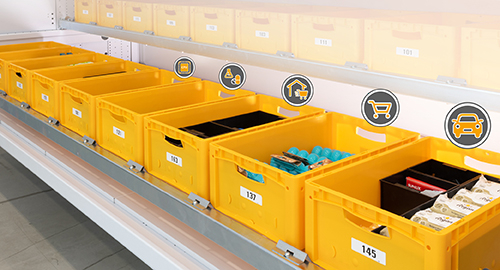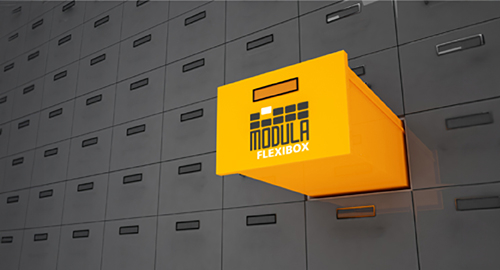In recent years, we have seen many changes in the field of logistics due to what is called the Fourth Industrial Revolution. The main developments are linked to the new technologies involved: the Internet and digital devices.
The challenges of digitisation in the Supply Chain relate mainly to the automation and interconnectivity of business processes and, in particular, the digitisation of the warehouse. One of the choices businesses are having to make is around their Warehouse Management System.
WMS is an auxiliary software tool connected to Inventory Management. Its purpose is to act as a support system for all aspects of warehouse management. This includes supply management, loading and unloading operations, product availability, etc. Choosing the correct product for your business represents a difficult challenge, but the advantages brought by management software are exceptional.
Let’s take a look at how you choose a WMS system and why.
How to choose management software that’s best for you
First of all you need to clarify what it is you want to achieve, in other words why you have chosen to invest in management software, and understand what budget resources you have available. Depending on your current situation and what you want to achieve in the future, you can opt for various types of WMS according to your budget and what features the software offers.
To be sure of making the right choice for your business, you need to assess some of the functionality and characteristics of WMS. Implementing management software is not simple. It requires you to mount a specific implementation project as it is customised to suit your business and requires some considerable time to install. Making the wrong choice can have very negative repercussions and may determine whether you succeed or fail.
In particular, you need to check the following points:
-
Adaptability
The Warehouse Management System that you have chosen must be adaptable not just to your business’ current situation but also to its future organisational structure. WMS is an extremely effective tool but only if correctly designed and based on a properly functioning business organisation. If you have had problems managing your warehouse, you must firstly carry out a preparatory analysis before choosing your software to understand how these problems may be resolved, and only then can you proceed with that choice. A healthy, functioning business is nevertheless constantly evolving, and choices that seem fine for the next 5 years can turn out to be insufficient for the next decade to come. When you make the decision to invest in management software, you must at the same time keep an eye on the long term, and for this reason you must be absolutely sure that the WMS is customisable, adaptable and scalable to your management flows which may change completely in the future.
-
Compatibility
If you already have a business management system, or an ERP (Enterprise Resource Planning) system for managing your business’ administration, you must choose a WMS which is able to integrate with your ERP or other MES (Manufacturing Execution System). The motive is simple: the success of WMS is based on data. If transverse information can be extrapolated quickly and easily from e.g. your ERP system which looks after all your administration, accounts and sales, then success is assured.
-
Remote support
You should preferably engage a supplier who provides a system of remote support. Deciding to invest in a Warehouse Management System is actually not just a choice which concerns the present. Given that this is an I.T. system, this means that unexpected problems can arise or simply that you may need long-term support. This is why the right choice is to have a guarantee of unlimited support time, ideally right through to your WMS end-of-life and also telephone/remote support to resolve any problems remotely in the shortest time possible. Remember that this Software is connected to and manages all the logic underpinning the operation of your warehouse, and therefore even a small problem can bring production to a stop. To limit downtime, put your trust in suppliers who offer remote support and who are able to control operations remotely, locate any bugs and above all resolve them.
Why use management software?
-
Organisation
Its main advantage is to be able to optimise all your available space by storing products in whichever part of the warehouse you like. There’s no need to worry about forgetting their location as you simply consult the software and get an immediate response.
WMS means that the time you spend conducting inventory is also vastly reduced. This is because you will only need to check that the data held in the system matches the physical existence of the stocks.
-
Security
Keeping track of all operations happening within the warehouse means that your stock is always under your control. A record is kept every time the system is accessed and if something goes missing, you will always know who accessed it and what operations they performed. You can actually tell who accessed each individual tray.
-
Throughput
WMS drastically reduces the amount of time it takes operators to retrieve products by suggesting picking routes. This in turn ensures shorter despatch times for your orders.
-
Efficiency
Rationalising movements and routes, eliminating errors and reducing the amount of paper documents leads to an increase in your operators’ productivity and therefore to a general increase in your company’s production efficiency.
-
Precision
You can at any time check product availability in your warehouse in real time and trace back over any operation carried out (e.g. despatch and receipt of orders). This is because WMS allows you to record everything automatically, eliminating the need for your operators to remember things and therefore be independent of your human resources.
The software only records operations when it receives confirmation that it was successfully performed. This limits any hidden costs such as partial order despatching.
8 types of waste that Vertical Lift Modules can eliminate



